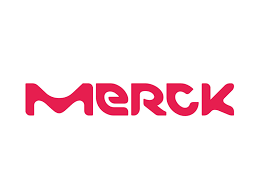The medicine is now approved for eight indications across five different types of cancer in China.

Merck known as MSD outside the United States and Canada announced that KEYTRUDA, Merck’s anti-PD-1 therapy, has been approved by the National Medical Products Administration (NMPA) in China in combination with platinum- and fluoropyrimidine-based chemotherapy for the first-line treatment of patients with locally advanced unresectable or metastatic carcinoma of the esophagus or gastroesophageal junction (GEJ).
This new indication was granted approval based on overall survival (OS) findings from the pivotal Phase 3 KEYNOTE-590 trial. KEYTRUDA is now approved for eight indications across five different types of cancer in China.
“In China, esophageal and gastroesophageal junction cancers are leading causes of death, and there have been few treatment advances for patients over the past several decades,” said Dr. Scot Ebbinghaus, vice president, clinical research, Merck Research Laboratories. “With this approval of KEYTRUDA plus chemotherapy – the first for an anti-PD-1 regimen in the first-line setting – we can now provide patients with an immunotherapy treatment option earlier in the course of treatment that has been shown to significantly improve survival.”
In the global KEYNOTE-590 study, KEYTRUDA in combination with chemotherapy (5-fluorouracil [5-FU] plus cisplatin) demonstrated statistically significant improvements in OS and progression-free survival (PFS) compared with 5-FU and cisplatin alone. KEYTRUDA plus 5-FU and cisplatin reduced the risk of death by 27% (HR=0.73 [95% CI, 0.62-0.86]; p<0.0001). The median OS was 12.4 months (95% CI, 10.5-14.0) for patients treated with KEYTRUDA plus 5-FU and cisplatin and 9.8 months (95% CI, 8.8-10.8) for patients treated with 5-FU and cisplatin alone. KEYTRUDA plus 5-FU and cisplatin reduced the risk of disease progression or death by 35% (HR=0.65 [95% CI, 0.55-0.76]; p<0.0001). The median PFS was 6.3 months (95% CI, 6.2-6.9) for patients treated with KEYTRUDA plus 5-FU and cisplatin and 5.8 months (95% CI, 5.0-6.0) for patients treated with 5-FU and cisplatin alone in all randomized patients. The Chinese package insert notes that the safety of KEYTRUDA plus chemotherapy was investigated in 51 Chinese patients with esophageal carcinoma in KEYNOTE-590, and the safety profile of the Chinese patients was generally consistent with the known safety profiles of KEYTRUDA monotherapy and chemotherapy.
“Compared to the rest of the world, China has a disproportionate number of patients who are diagnosed with and who die from esophageal cancer, the fifth most commonly diagnosed cancer and the fourth leading cause of cancer-related death in the country,” said Prof. Shen Lin, vice president, Clinical Oncology, Beijing Cancer Hospital and Peking University, and deputy director, Beijing Institute for Cancer Research. “This approval for KEYTRUDA provides an important new option to patients with advanced esophageal carcinoma in China who currently have limited available treatment options in the first-line setting.”
This is the second indication for KEYTRUDA in esophageal cancer in China. In addition to this new approval, KEYTRUDA is approved in China for second-line treatment of certain patients with locally advanced or metastatic esophageal squamous cell carcinoma whose tumours express PD-L1 (Combined Positive Score [CPS] ≥10). Merck is continuing to study KEYTRUDA across multiple settings and stages of gastrointestinal cancer through its broad clinical program, including studies in esophageal, gastric, hepatobiliary, pancreatic, colorectal and anal cancers.

Subscribe To Our Newsletter & Stay Updated